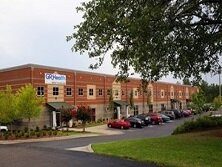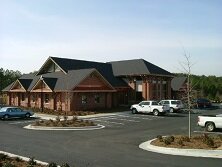Heart Failure on the Rise
Take these offensive moves
Thanks to improved medications and advanced procedures, increasing numbers of people are surviving heart attacks and coronary artery disease. Yet many of these people are struggling with heart failure, also known as congestive heart failure.
According to John Thornton III, MD, a cardiologist at Georgia Regents Cardiovascular Center who directs the outpatient heart failure program, the condition occurs when the heart becomes too weak to circulate enough blood to meet the body's needs. This chronic, progressive disease causes shortness of breath and fluid retention.
“Heart failure is often caused by other conditions that damage the heart muscle, such as coronary artery disease, heart attacks, high blood pressure or heart valve problems,” says Dr. Thornton.
Like coronary artery disease, heart failure is largely preventable.
What’s the Best Defense?
Dr. Thornton suggests you take these steps to prevent heart failure:
- Control your blood pressure.
- Eat a low-fat, low-salt diet.
- Exercise regularly and maintain a healthy weight.
- Don't smoke.
- Drink alcohol only in moderation if at all.
- Take medications as prescribed.
Heed these Warnings
Contact your physician if you experience these signs of heart failure:
- Weight gain of three pounds or more in one day
- Fatigue and weakness
- Persistent coughing or wheezing
- Swelling in the abdomen, legs, ankles or feet
- Shortness of breath and reduced ability to exercise
- Rapid or irregular heartbeat
“Although most cases of heart disease can’t be cured, early diagnosis and good medical management can help patients live longer, more active lives,” says Dr. Thornton.
Comprehensive Medical Management
Georgia Regents Cardiovascular Center Heart Failure Program offers a full range of care for heart failure, including:
- Medications and medical management
- Heart failure education
- Investigational drugs and devices
- Cardiac catheterization
- Electrophysiology services, including biventricular pacemakers
- A state-of-the-art Cardiac Rehabilitation Center
- Cardiac surgery
Call (706) 721-2273 (CARE) now to schedule an appointment with a cardiologist who specializes in heart failure.
Heart Failure By the Numbers
According to the Centers for Disease Control, heart failure:
- Affects 5.7 million Americans
- Is the primary cause of death of 55,000 Americans a year
- Contributes to the death of more than 280,000 Americans a year
Helpful Related Links:
All there is to know about heart failure and its affects on the body





